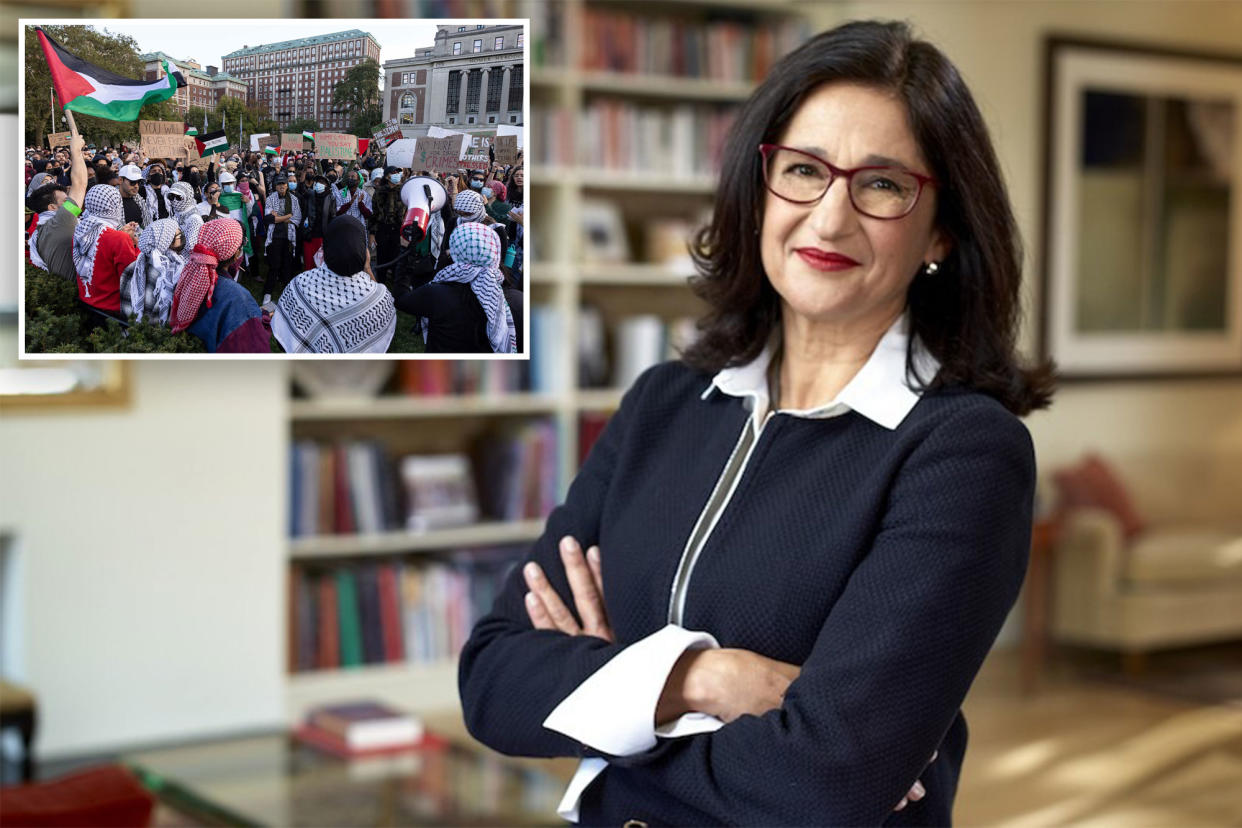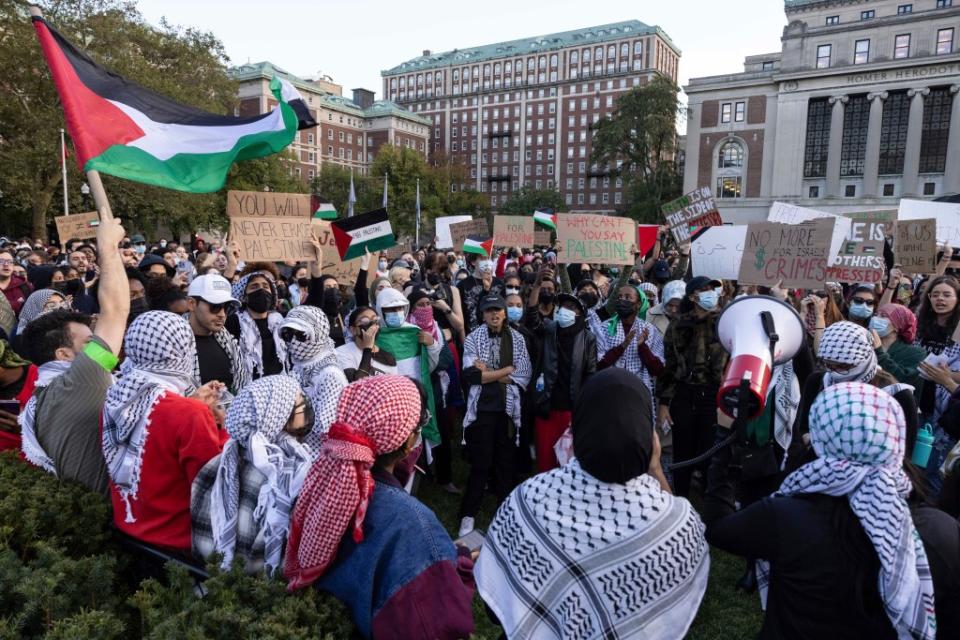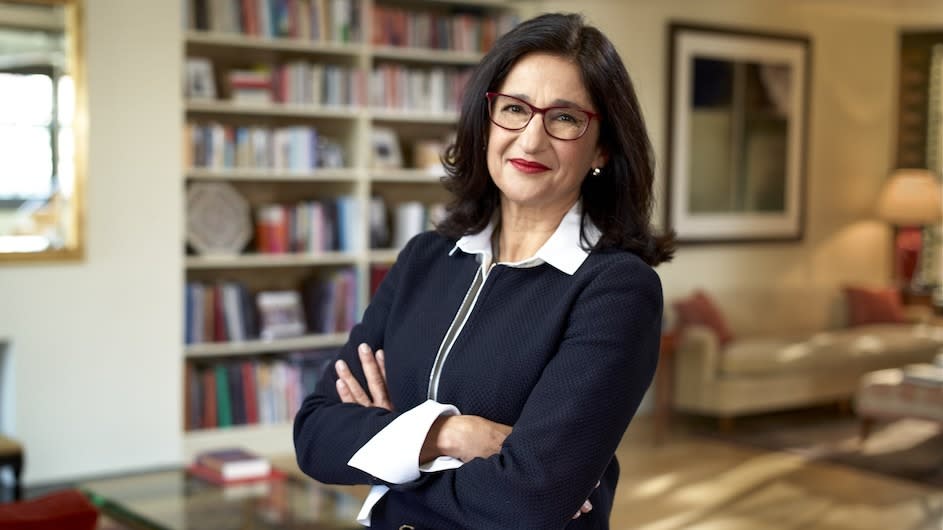Bombshell antisemitism report details Columbia University’s lax approach to protest policies: ‘Serious concerns’

A new report into antisemitism at Columbia University has revealed the embattled Ivy League school’s failure to properly enforce its new demonstration policies — following an eruption of protests related to the Israel-Hamas war.
The report, which is the first of a series being released by the University’s Task Force on Antisemitism, called out “repeated violations by student groups” and highlighted the “isolation and pain” felt by the Jewish community at Columbia.
While supporting the new protest policy — the report stressed it needs to be enforced.
“Although we generally agree with the language of the University’s rules, we have serious concerns about their enforcement,” the report states.
An interim policy was established in February — shortening the protest approval window and establishing designated spaces for demonstrations.
“The University generally has not tried to stop violations as they have occurred, and instead has focused on imposing discipline after the fact,” the report said.
“The priority during protests has been to avoid violence and escalation. In our view, avoiding violence is necessary, but not sufficient.”
Michelle Ahdoot of the activist group End Jew Hatred called the report a “failure.”
“It’s important to point out what this first report from the Task Force on Antisemitism is not: it’s not action,” she said.
“While we appreciate the admission that Jew-hatred has gone too far at Columbia, this report fails to propose any meaningful immediate solution to decrease the hostile environment targeting Jewish students.”
The report also cites that protestors have “disrupted classes and events, taken over spaces in academic buildings, held unauthorized demonstrations, and used ugly language to berate individuals who were filming these protests or just walking by.”

Jewish students at Columbia University have also been targets of “racist epithets and graffiti, antisemitic tropes, and confrontational and unwelcome questions,” the report noted.
“While others have found their participation in some student groups that have nothing to do with politics to be increasingly uncomfortable,” it stated.
Israeli students, staff and faculty who have been required to serve in the military have also been criticized, while many who heard chants at protests like “Globalize the Intifada” and “Death to the Zionist State” have seen those as calls for violence against them and their families, the report added.
Columbia has been the site of heated activism since the brutal attacks waged by Hamas on Israel on Oct 7 with protests from both sides erupting on campus.
An Israeli student was beaten with a stick outside the University’s main library and hundreds of faculty signed a letter condemning students support of Hamas in the wake of the conflict.

In the months to follow an eruption of protests and multiple lawsuits launched from both pro-Israel and anti-Israel students.
Just this week, faculty member Shai Davidai an Israeli-born Columbia University professor who gained notoriety for ripping the school’s failure to address rampant antisemitism on campus revealed he’s under investigation — a probe he said is a “clear act of retaliation and an attempt to silence me.”
University President Minouche Shafik helped establish the five panel taskforce – headed by campus professors – in November.
At the time the school said it was pushed to establish the task force after a notable increase in the amount of reported antisemitic attacks — both physical and ideological — on its Manhattan campus after Hamas’ surprise Oct 7 attack.
Shafik welcomed the report in a statement to the Post, accepting that more needs to be done.

“As the task force makes clear, it is essential to ensure that debates and disagreements across Columbia are rooted in academic rigor and civil discourse, and that Jewish students, faculty, and staff, and all members of our community, feel safe, supported, and included,” she said.
Shafik, who helped establish the taskforce, went on to acknowledge that they would be working across a “number of fronts” to address this “ancient, but sadly persistent form of hate.”
Next month Shafik is expected to testify at a Congressional hearing on campus antisemitism.
The House Education and Workforce Committee announced it will hold a hearing on April 17 featuring the Columbia President and the two co-chairs of the board of trustees, Claire Shipman and David Greenwald.
Shafik had been invited to testify at a disastrous December hearing where the presidents of Harvard University, the Massachusetts Institute of Technology and the University of Pennsylvania struggled to answer questions on antisemitism, but was unable to attend.